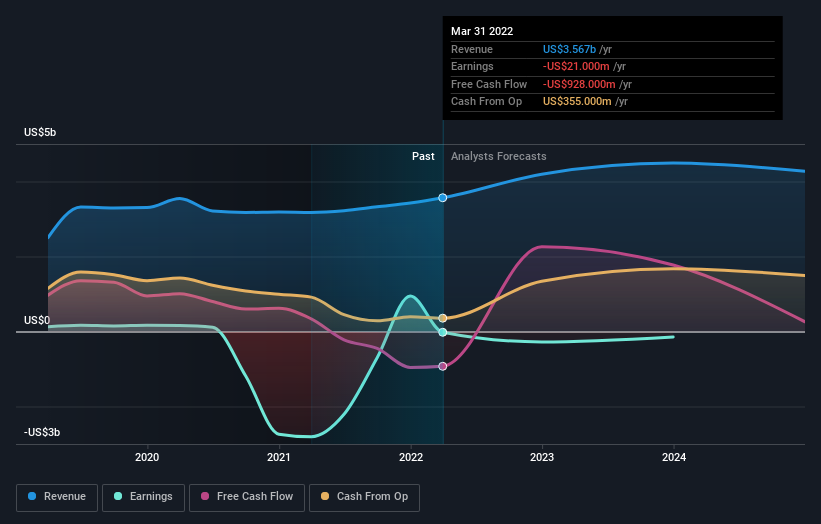Strong week for Brookfield Renewable (TSE:BEPC) shareholders doesn't alleviate pain of one-year loss
Investors can approximate the average market return by buying an index fund. When you buy individual stocks, you can make higher profits, but you also face the risk of under-performance. For example, the Brookfield Renewable Corporation (TSE:BEPC) share price is down 11% in the last year. That's disappointing when you consider the market declined 1.0%. Brookfield Renewable may have better days ahead, of course; we've only looked at a one year period. The share price has dropped 15% in three months. Of course, this share price action may well have been influenced by the 13% decline in the broader market, throughout the period.
While the last year has been tough for Brookfield Renewable shareholders, this past week has shown signs of promise. So let's look at the longer term fundamentals and see if they've been the driver of the negative returns.
Check out our latest analysis for Brookfield Renewable
Because Brookfield Renewable made a loss in the last twelve months, we think the market is probably more focussed on revenue and revenue growth, at least for now. Shareholders of unprofitable companies usually expect strong revenue growth. Some companies are willing to postpone profitability to grow revenue faster, but in that case one does expect good top-line growth.
In the last twelve months, Brookfield Renewable increased its revenue by 12%. That's not a very high growth rate considering it doesn't make profits. Given this lacklustre revenue growth, the share price drop of 11% seems pretty appropriate. In a hot market it's easy to forget growth is the life-blood of a loss making company. But if you buy a loss making company then you could become a loss making investor.
The image below shows how earnings and revenue have tracked over time (if you click on the image you can see greater detail).
It's good to see that there was some significant insider buying in the last three months. That's a positive. That said, we think earnings and revenue growth trends are even more important factors to consider. You can see what analysts are predicting for Brookfield Renewable in this interactive graph of future profit estimates.
What About Dividends?
When looking at investment returns, it is important to consider the difference between total shareholder return (TSR) and share price return. The TSR is a return calculation that accounts for the value of cash dividends (assuming that any dividend received was reinvested) and the calculated value of any discounted capital raisings and spin-offs. It's fair to say that the TSR gives a more complete picture for stocks that pay a dividend. As it happens, Brookfield Renewable's TSR for the last 1 year was -8.3%, which exceeds the share price return mentioned earlier. This is largely a result of its dividend payments!
A Different Perspective
We doubt Brookfield Renewable shareholders are happy with the loss of 8.3% over twelve months (even including dividends). That falls short of the market, which lost 1.0%. There's no doubt that's a disappointment, but the stock may well have fared better in a stronger market. Notably, the loss over the last year isn't as bad as the 15% drop in the last three months. So it seems like some holders have been dumping the stock of late - and that's not bullish. While it is well worth considering the different impacts that market conditions can have on the share price, there are other factors that are even more important. Take risks, for example - Brookfield Renewable has 4 warning signs (and 2 which are significant) we think you should know about.
Brookfield Renewable is not the only stock insiders are buying. So take a peek at this free list of growing companies with insider buying.
Please note, the market returns quoted in this article reflect the market weighted average returns of stocks that currently trade on CA exchanges.
Have feedback on this article? Concerned about the content? Get in touch with us directly. Alternatively, email editorial-team (at) simplywallst.com.
This article by Simply Wall St is general in nature. We provide commentary based on historical data and analyst forecasts only using an unbiased methodology and our articles are not intended to be financial advice. It does not constitute a recommendation to buy or sell any stock, and does not take account of your objectives, or your financial situation. We aim to bring you long-term focused analysis driven by fundamental data. Note that our analysis may not factor in the latest price-sensitive company announcements or qualitative material. Simply Wall St has no position in any stocks mentioned.

 Yahoo Sports
Yahoo Sports 
